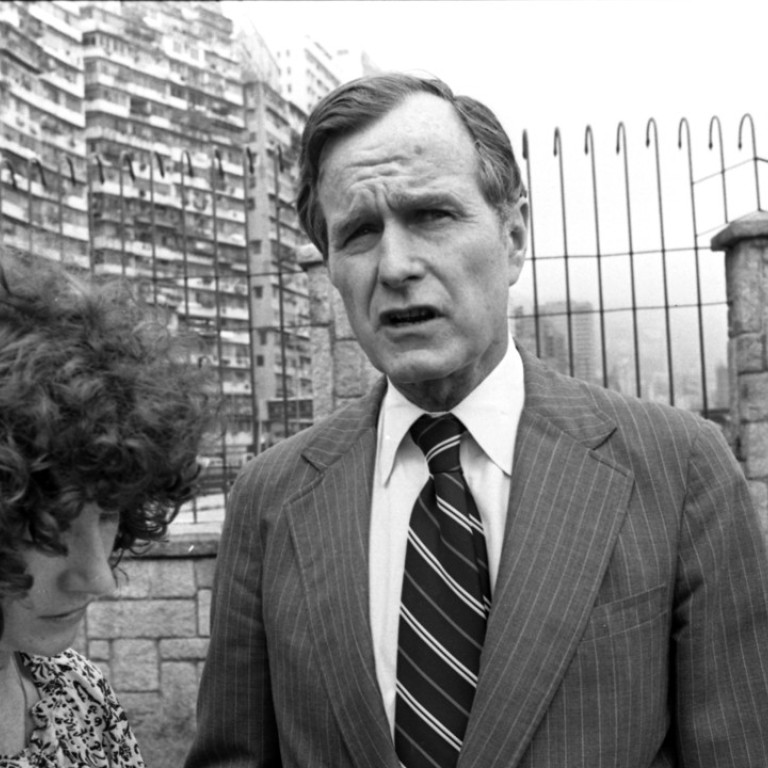
Letters | George H.W. Bush and Hong Kong: How the city played a little-known role in the former president’s career
- Bush announced his run for the presidency in Hong Kong in 1978, going on to become Ronald Reagan’s vice-president
While driving to the club in a taxi, Bush told me he would surprise everyone at the end of his speech by announcing his candidacy for the presidency of the United States. He went on to shock everyone in the room; reporters rushed to the phones to report the news. He told me he was the first presidential candidate in US history to announce his candidacy in a foreign land. He chose Hong Kong due to his affection for the freedoms and dynamism of the city.
He told me later that, though he did not win the Republican nomination, the strong media coverage in Hong Kong sufficiently impressed the ultimate winner, Ronald Reagan, to select him as his vice-presidential partner. Reagan and Bush went on to win two consecutive terms and, ultimately, Bush, went on to become the 41st president in 1988.
So, please take a bow, Hong Kong, for playing an instrumental role in a wonderful, gracious and talented statesman becoming the president of the United States of America.
Robert Theleen, chairman, ChinaVest, Shanghai

